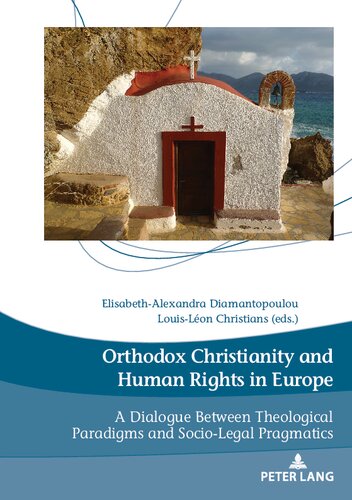

Most ebook files are in PDF format, so you can easily read them using various software such as Foxit Reader or directly on the Google Chrome browser.
Some ebook files are released by publishers in other formats such as .awz, .mobi, .epub, .fb2, etc. You may need to install specific software to read these formats on mobile/PC, such as Calibre.
Please read the tutorial at this link: https://ebookbell.com/faq
We offer FREE conversion to the popular formats you request; however, this may take some time. Therefore, right after payment, please email us, and we will try to provide the service as quickly as possible.
For some exceptional file formats or broken links (if any), please refrain from opening any disputes. Instead, email us first, and we will try to assist within a maximum of 6 hours.
EbookBell Team

4.4
72 reviewsThis collective book aims at examining in what terms, and to what extent, the "reception" of the Human Rights doctrine takes place in Eastern Orthodox countries, as well as in the Orthodox diaspora. A series of questions are raised regarding the resources and theological structures that are mobilized in the overall Human Rights’ debate and controversy, the theological "interpretation" of Human Rights within the Eastern Orthodox spiritual tradition, and the similarities and/or divergences of this "interpretation", compared to the other Christian confessions. Special attention is given to the various Orthodox actors on the international arena, aside the national Orthodox churches, which participate in the Ecumenical dialogue, as well as the dialogue with the European and international institutions.
Religious freedom, as a fundamental Human right, guaranteed by the European Convention of Human Rights (ECHR), constitutes a key-issue that contributes to broadening the reflections on the overall Human Rights-related problematic between East and West, by shading light on the more complex issue pertaining to the conceptualization and implementation of Human Rights in countries belonging to the Eastern Orthodox tradition.
The present volume studies the diversity that characterizes the Orthodox theological traditions and interpretations regarding Human Rights, not only in terms of an "external", or a "strategical" approach of socio-political and ecclesial nature, but also through a reflexive analysis of theological discourses.